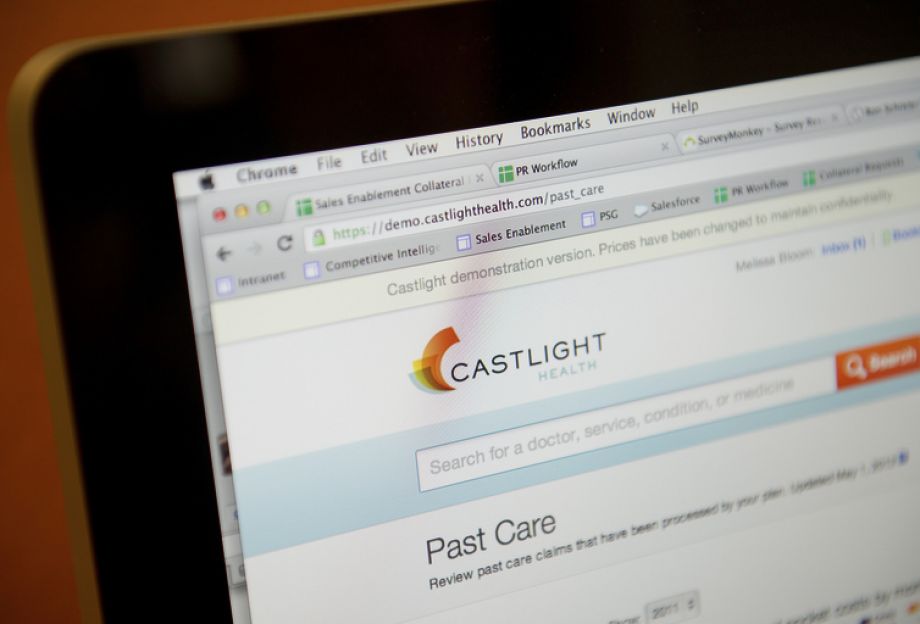By Stephanie Lee
San Francisco Chronicle.
Last year was a gold rush for digital health startups, which raised a record $4 billion in venture capital. But for digital health stocks, 2014 was less than stellar.
About 20 public digital health companies had returns below the S&P 500. And five companies that went public ended the year trading below their highs.
Depending on whom you ask, that performance may have no bearing on the hundreds of privately held, venture-backed startups that are developing technology to improve health care. Or it may be a reminder that in this emerging and challenging industry, most of these startups probably won’t ever go public.
These dual trends were recently noted in an annual report by Rock Health, a San Francisco accelerator that provides seed funding to digital health companies. Managing director Malay Gandhi said investors and entrepreneurs will be watching closely as several businesses are expected to go public this year. Surveyed readers of Rock Health’s newsletter predicted that Fitbit, ZocDoc, Practice Fusion, Proteus Digital Health and 23andMe would be among them.
“There’s no question we’re going to have a big problem if we can’t get some of these name-brand companies to go public that have taken on a lot of venture money over the last seven to eight years,” Gandhi said. “We need to see these companies go public and generate returns for the investors … I’m just not ready to push the panic button quite yet.”
Venture capitalists are betting big on digital health, a broad category that spans telemedicine apps, biometric-tracking wearables and consumer tools for purchasing health care. Almost 260 companies raised $4 billion last year, nearly equivalent to the combined amounts raised in 2011, 2012 and 2013, according to Rock Health’s analysis, which included only deals worth at least $2 million.
New law helped
The explosion in investment is in part because of the Affordable Care Act, which established financial incentives for the health care system to improve patient outcomes and the quality of care. And technologies that have in the last few years gained wide footing in other industries — such as the smartphone, which has given risen to on-demand service apps, and analytic tools that crunch data of all kinds — are now being tailored for health care.
At the same time, 19 publicly traded digital health companies “did not fare well in a year when the public markets demonstrated strong overall performance,” Rock Health analysts wrote. This wide-ranging group included health IT company Cerner, electronic medical record provider AthenaHealth, health information site WebMD and Care.com, which helps people find child and senior care.
“It’s too short a time period to worry about,” said Bryan Roberts, a partner at the Palo Alto venture capital firm Venrock. “Investors are trying to invest in something that they think will be an interesting business in four to five years.”
One of Venrock’s investments, Castlight Health, suffered a high-profile tumble last year. The San Francisco company, whose software lets employers manage employee health care costs, saw shares soar to almost $40 upon its March debut, 149 percent above the initial public offering price. By the end of the year, shares were trading at 27 percent below the IPO price.
Calming market
Some investors say Castlight’s drop was a result of a feverish market that has calmed down, not necessarily a sign of what awaits other digital health startups.
Kleiner Perkins Caufield & Byers is the most active venture capital firm in digital health, having made seven investments last year and 17 since 2011, according to Rock Health. Three companies hope to go public this year, said general partner Beth Seidenberg, who leads the Menlo Park venture firm’s digital health activity.
“There’s so much opportunity to bring technology to health care that just hasn’t happened in the past, partly because we haven’t had the technology to deploy and partly because the system was so closed and a black box,” Seidenberg said. “Now it’s a transparent box.”
Health technology has been slow to take off because most consumers still don’t realize or appreciate that they can use online tools to manage their care or make better purchasing decisions, said David Francis, an RBC Capital Markets analyst.
Over the next decade, he said, the market could be worth as much as $100 billion. But it’s too early to know when that demand will really take off, and therefore which startups will emerge as dominant players — the field’s equivalent of Google or Apple.
Many more will fail or become acquired, he said, “just like we saw in the dot-com boom 15 to 20 years ago.”
“We’re still in the top of the first inning as far as the development of the consumer health marketplace,” he said.














































































































































































































































































































































































